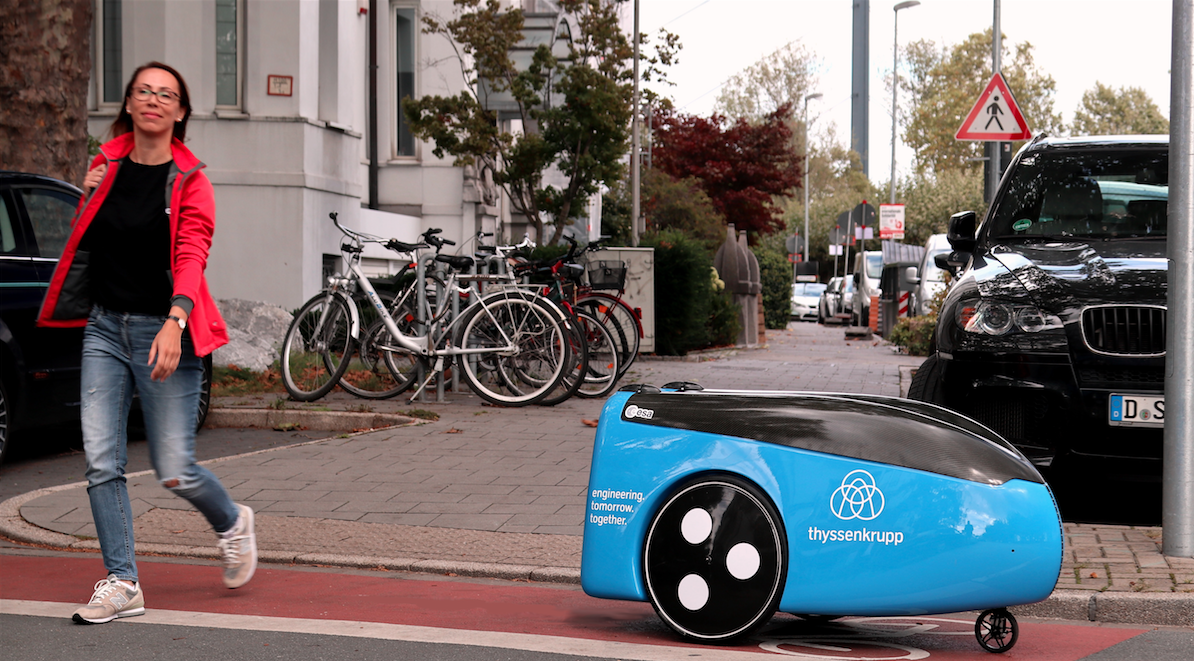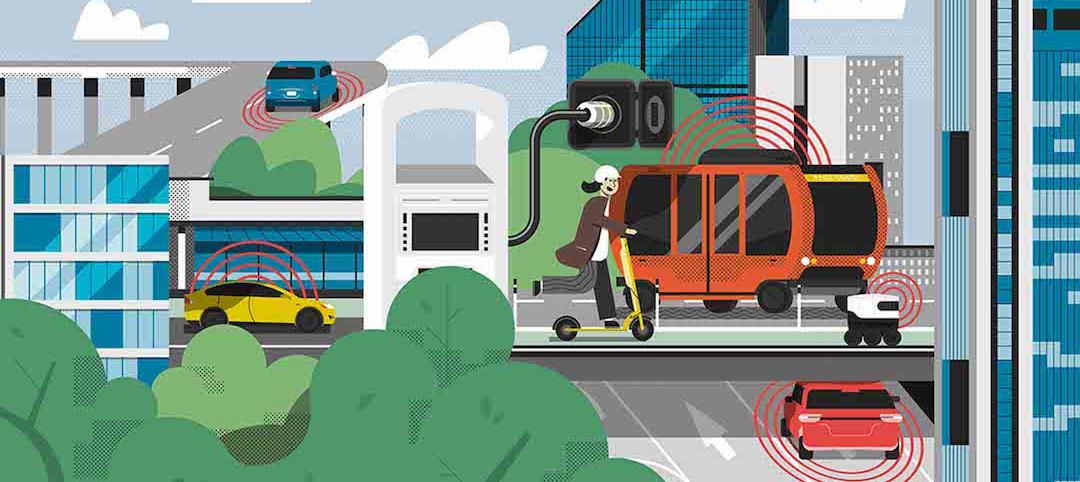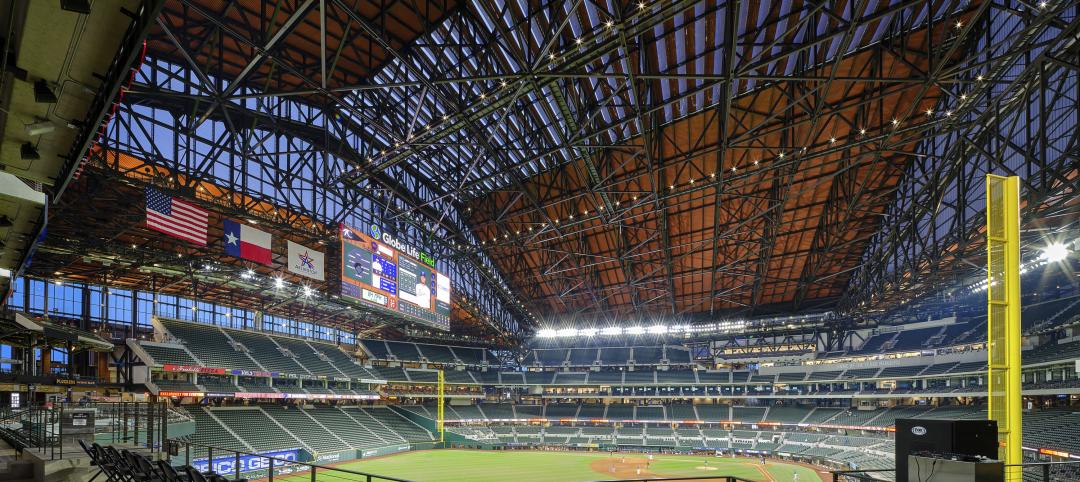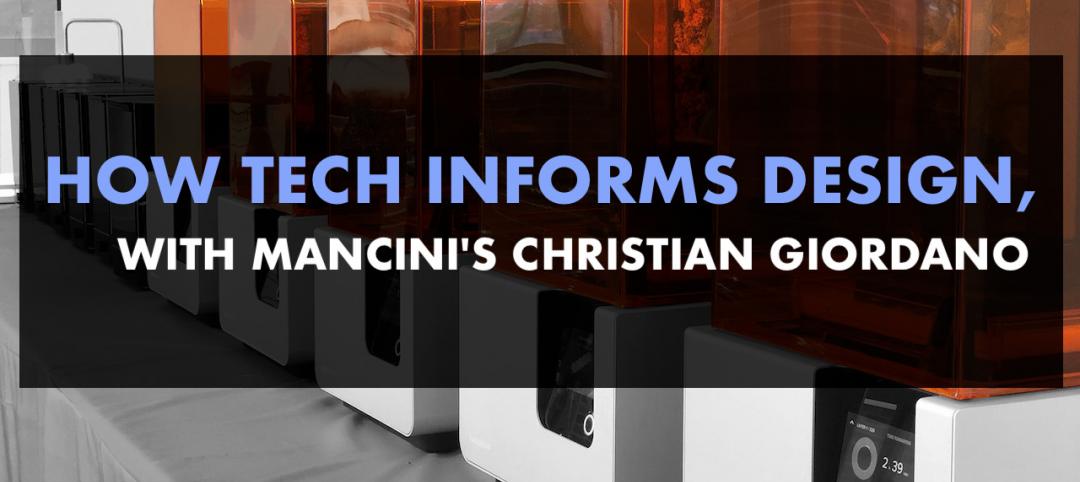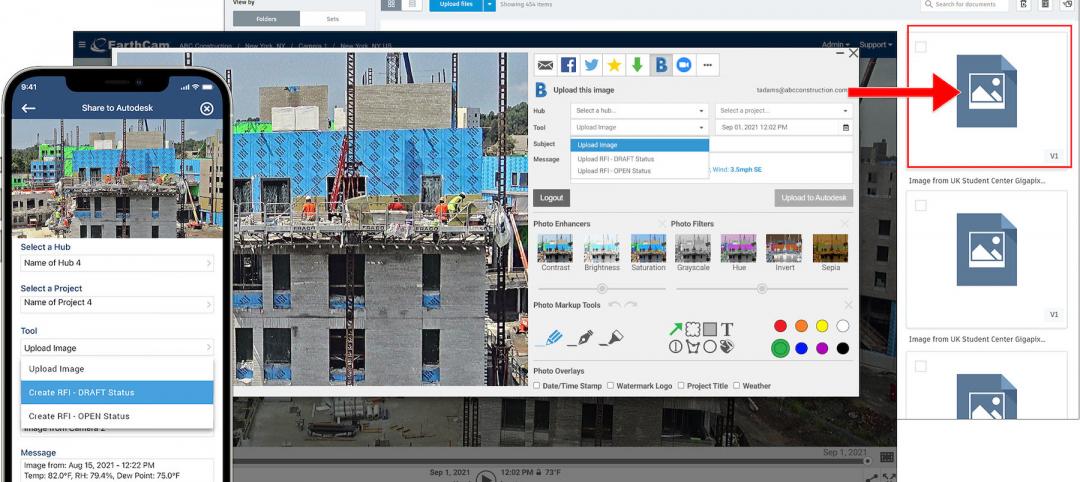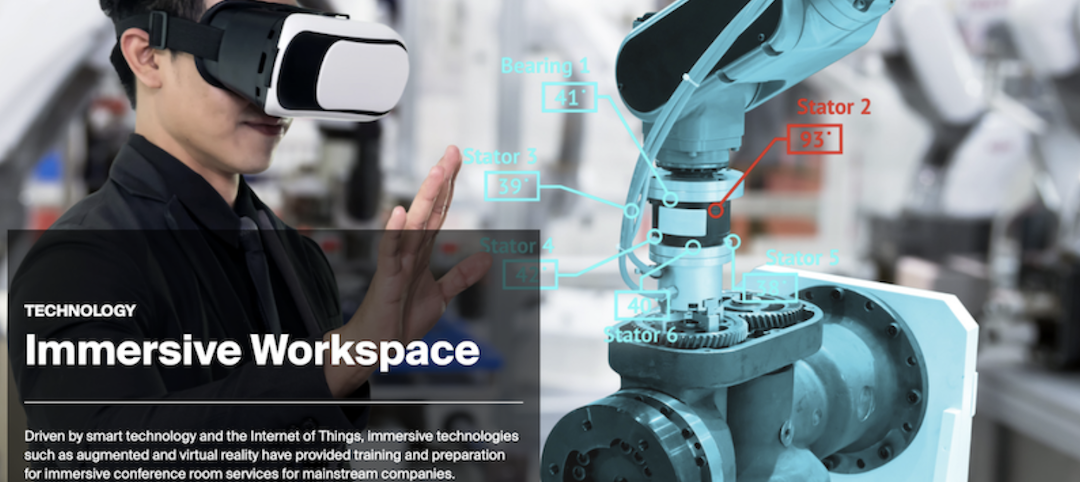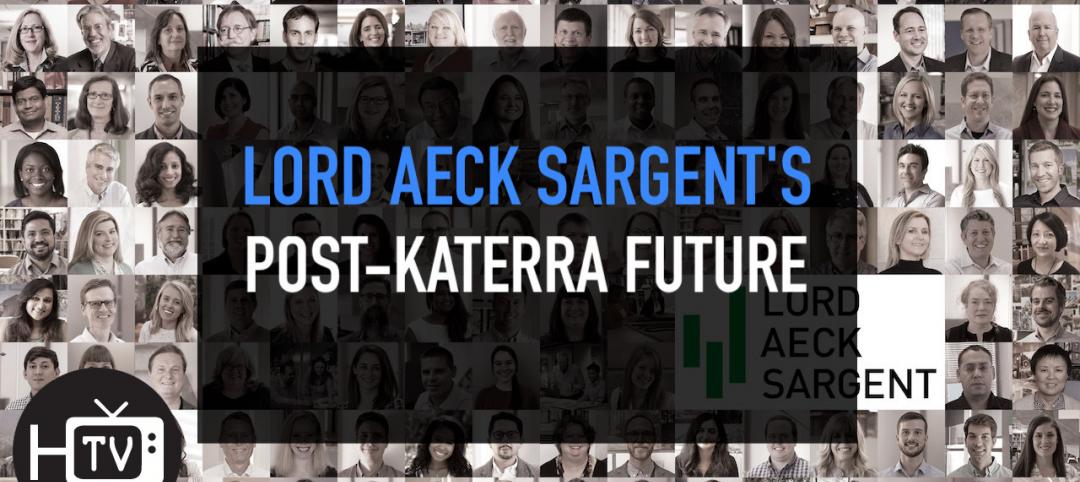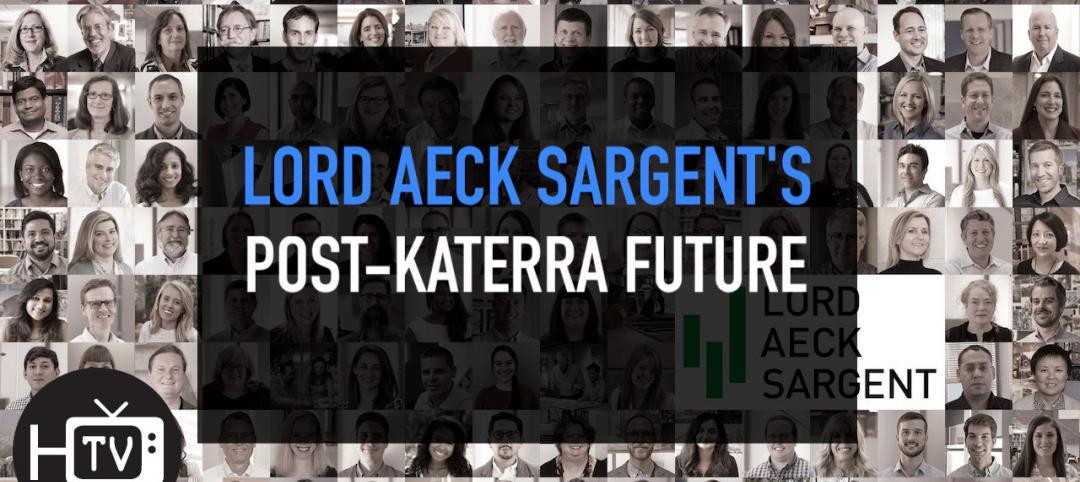Last week, vertical transportation giant thyssenkrupp debuted a novel technology that could transform its parts and materials supply chain in dense urban environments.
As part of a U.S. Senate Field Hearing on automotive innovation, January 24 at the Washington (D.C.) Auto Show 2018, thyssenkrupp showcased its newly developed self-driving delivery robot. Co-developed by software maker TeleRetail, the system is designed to transport spare parts and materials to field technicians working in busy, congested urban markets.
During elevator and escalator servicing sessions, spare parts are needed quickly, and a technician either has to drive back to base in his or her service vehicle or have it delivered by a colleague. With increased traffic clogging up city streets, the pressure on the supply chains is rapidly increasing, according to thyssenkrupp.
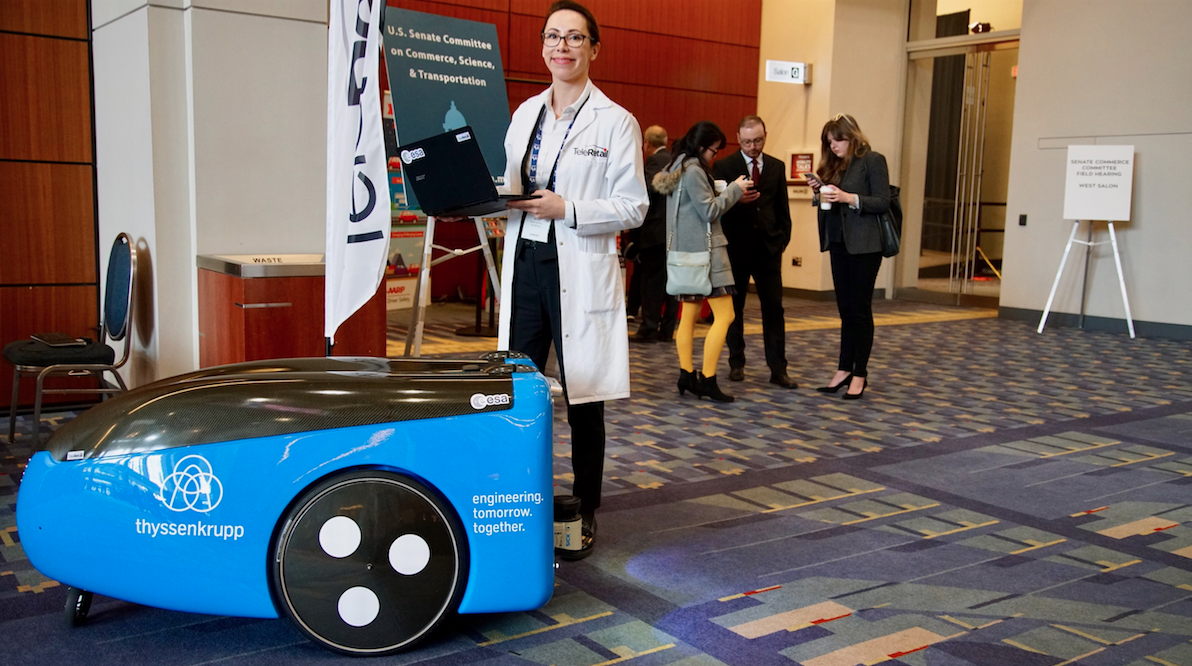 Xenia Scholl of TeleRetail poses with the delivery robot at the Washington (D.C.) Auto Show 2018. Photo courtesy thyssenkrupp
Xenia Scholl of TeleRetail poses with the delivery robot at the Washington (D.C.) Auto Show 2018. Photo courtesy thyssenkrupp
“This is a major urbanization challenge that our service technicians are already experiencing today,” said Ivo Siebers, Senior Vice President of Global Logistics, thyssenkrupp Elevator. “With driverless delivery robots, we could fill a gap and get spare parts from our warehouses to the jobsite faster, more efficiently, and with less impact on the environment.”
Measuring 33 inches wide, the delivery robots can travel on sidewalks and can carry payloads weighing up to 77 lbs. An online logistics platform allows technicians and the operations center to track the progress of deliveries in real time.
“Fast-growing American metropolitan areas need intelligent solutions to cover the last mile in delivering spare parts to our technicians,” added Siebers. “In connection with TeleRetail, we are testing autonomous vehicles to solve this growing logistical problem.”
Related Stories
Urban Planning | Dec 15, 2021
EV is the bridge to transit’s AV revolution—and now is the time to start building it
Thinking holistically about a technology-enabled customer experience will make transit a mode of choice for more people.
Designers / Specifiers / Landscape Architects | Nov 16, 2021
‘Desire paths’ and college campus design
If a campus is not as efficient as it could be, end users will use their feet to let designers know about it.
AEC Tech | Oct 25, 2021
Token Future: Will NFTs revolutionize the design industry?
How could non-fungible tokens (NFTs) change the way we value design? Woods Bagot architect Jet Geaghan weighs risk vs. reward in six compelling outcomes.
Sponsored | BD+C University Course | Oct 15, 2021
7 game-changing trends in structural engineering
Here are seven key areas where innovation in structural engineering is driving evolution.
AEC Tech Innovation | Oct 7, 2021
How tech informs design: A conversation with Mancini's Christian Giordano
Mancini's growth strategy includes developing tech tools that help clients appreciate its work.
AEC Tech | Oct 5, 2021
EarthCam Builds On its Connectivity with Autodesk Construction Cloud
Premiering new visual verification features for Autodesk Build and BIM 360
AEC Tech | Sep 21, 2021
A new webtool follows ConTech from incubation to application and beyond
MIT and JLL have created Tech Tracker to help real estate professionals see what’s hot now and what might be.
Architects | Aug 5, 2021
Lord Aeck Sargent's post-Katerra future, with LAS President Joe Greco
After three years under the ownership of Katerra, which closed its North American operations last May, the architecture firm Lord Aeck Sargent is re-establishing itself as an independent company, with an eye toward strengthening its eight practices and regional presence in the U.S.
Architects | Aug 5, 2021
Lord Aeck Sargent's post-Katerra future, with LAS President Joe Greco
After three years under the ownership of Katerra, which closed its North American operations last May, the architecture firm Lord Aeck Sargent is re-establishing itself as an independent company, with an eye toward strengthening its eight practices and regional presence in the U.S.
AEC Tech | Jul 14, 2021
Bjarke Ingels Group and UNStudio invest in SpaceForm, a virtual workspace for architects
Squint/Opera developed the platform in 2018.


